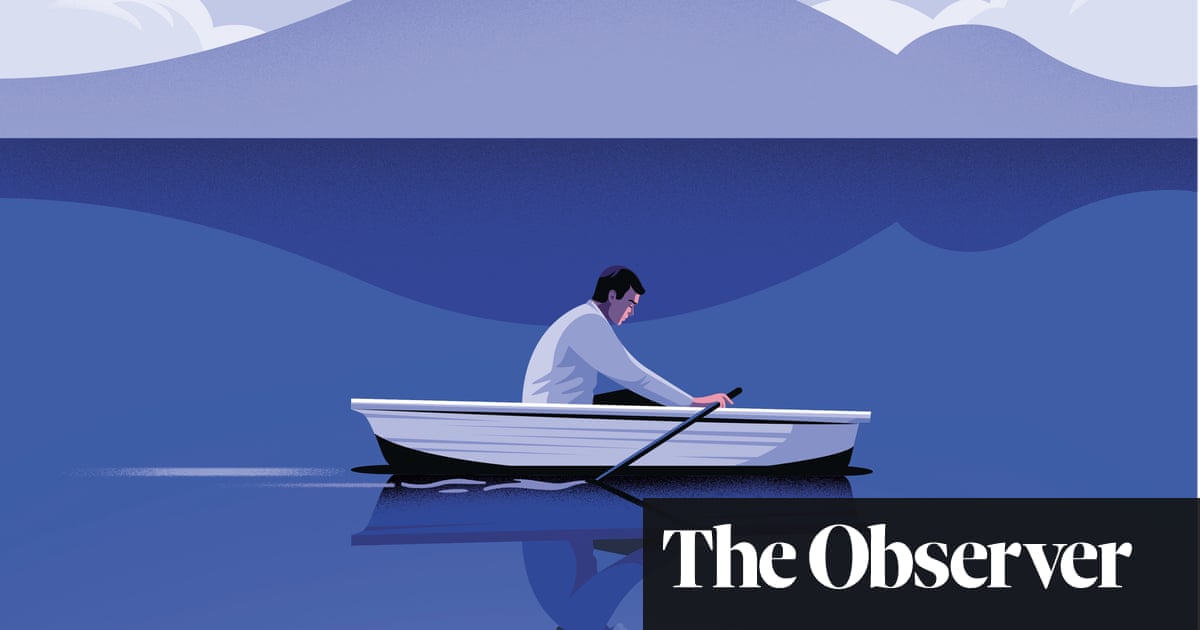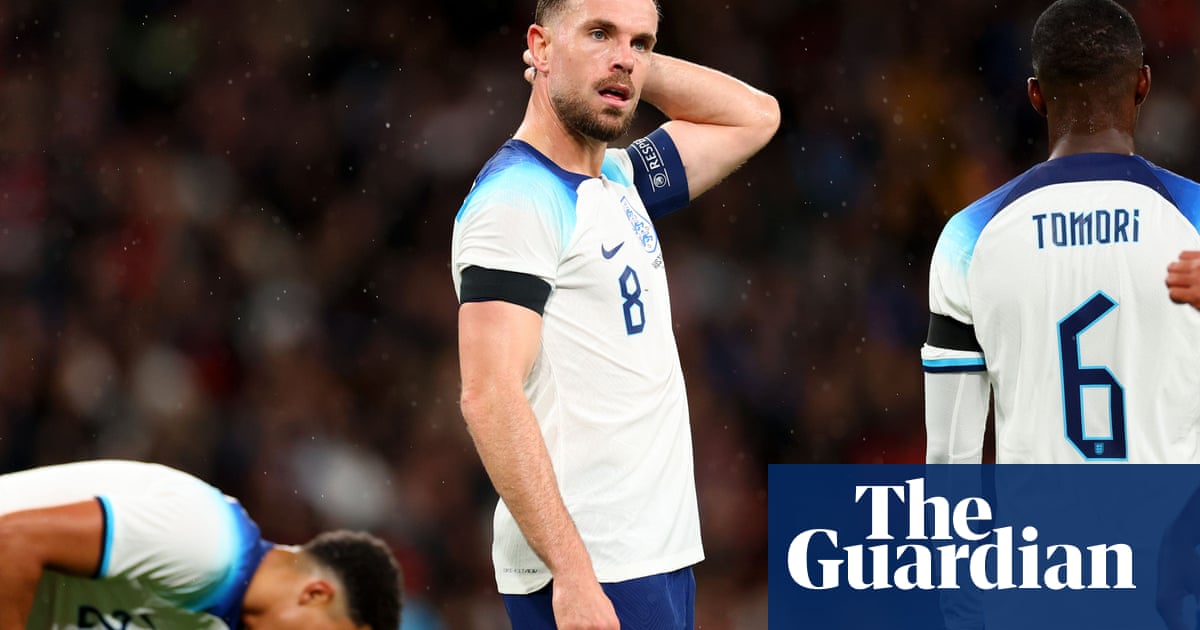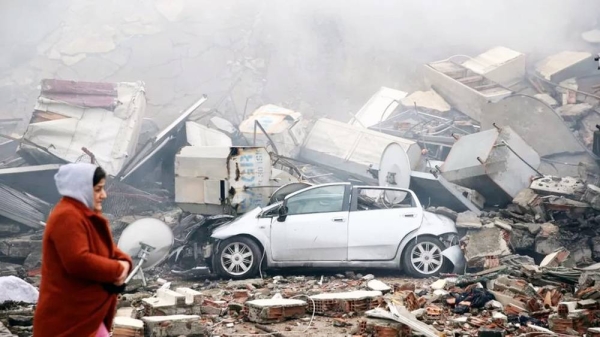
The spring before the pandemic, we went to Dungeness in Kent to stay with some friends. One blustery morning, Hazel and I walked up and down the desolate beach – nuclear power station in the distance, abandoned boats and buildings dotted across the shingles – debating whether or not to try to have a second child.
With the wind at our backs, we talked about why we shouldn’t – the difficulty of pregnancy, the loneliness of maternity leave, the challenge of doubling the number of people who relied upon us. We were both knackered already just with one – would we be able to cope with two?
Then we turned and strode back into the gale, our bodies tipped forwards at 30 degrees, contemplating the alternative. There were no practical considerations in favour – there is nothing logical about children – rather, just feelings. The idea of two felt right, both for us and, we imagined, for our son. By the time we left Dungeness, we had decided the answer was yes.
The first miscarriage happened in mid-October, just before the clocks went back. A few weeks earlier there had been spotting, so Hazel went in for an early scan. A tiny heartbeat appeared on the monitor – everything was fine. But by 11 weeks, there was more spotting. Hazel went into hospital, my empty words of reassurance floating in the wind. An hour later, she rang me, devastated but calm. The foetus had died five weeks ago, but her body hadn’t realised. A missed miscarriage, we learned.
The nurse, a slight, gentle woman, brought her tea and a leaflet. We talked through the options and agreed to come back the next day to have the tissue removed. That phrase makes it sound cold, but I don’t know how else to describe it. The procedure took just 15 minutes; a doctor and nurse silently, smoothly, determinedly doing what we’d asked them to do.
Grief after a miscarriage is hard to quantify. There are moments you can be phlegmatic – one in three pregnancies end in miscarriage; we’re lucky we have our son; we can try again; we have each other. And there are moments when it’s harder. What you’ve lost is the idea of a person and a future path you can no longer take. Had the pregnancy succeeded, a child would have been born the following May. There are moments, flicking through a calendar, reminding yourself of a birthday or a plan to meet, that it catches you. Oh, yes, then.
The miscarriage happened to Hazel. She was the one growing our baby, she was the one who suffered the physical pain, who had to undergo a medical procedure. My primary role, I thought, was to support her. Four years on, I still think that’s the case. But it also meant I didn’t really acknowledge how devastated I was.
At the time, I thought I handled it all well. I talked to friends and family, told them what had happened, accepted their hugs and warm words. I’ve patted myself on the back for being able to talk about it, for opening up to my friends and letting them know how I felt.
Looking back at the messages now, though, I realise that’s not quite true.
“Hey. Some sad news. Haze had a miscarriage yesterday. We were 12 weeks along and beginning to get excited. We’re both all right, just sad.”
I have some news, here it is, but don’t worry, it’s fine.
If you Google “men and miscarriage” – and yes, I have, several times – one of the first things that pops up is a website run by Chris Whitfield. There are links and videos offering advice, but the most useful part is the forum: message after message from men who went through what I did and are just as clueless.
There are recurring themes: men trying to be strong for their partners, men trying to block out the pain by throwing themselves into work or going to the gym, men repressing their feelings, men getting angry “for no reason”, men unable to deal with grief, because they have been told again and again and again that boys don’t cry.
They have searched the internet at one in the morning for information, help, support, something that might begin to help them make sense of what’s just happened and how they feel.
“I cry in the shower, I feel anger when people do the tiniest little thing to irritate me and I don’t know how to process the emotions,” writes one man. “I want to be strong for my wife and my son, but it feels like the pain will never stop. I’m very good at dealing with emotions most of the time, but this one physically takes my breath away.”
Some admit this is the first time they’ve ever talked about their feelings. “I normally only use these types of things to look for solutions and get advice about cars,” writes another.
Our second miscarriage was quicker, just a week after Hazel had taken the pregnancy test. There was spotting, then there was bleeding, and that was it. There hadn’t been a chance for hope, just a few days of anxiety.
Outside my family, I told almost no one. I just wanted to get on with it, not dwell on it. One in three pregnancies end in miscarriage; we’re lucky we have our son; we can try again; we have each other.
But we both found this second miscarriage harder. You start to wonder whether there is a problem, whether this is it. Not that there is any way of finding out. The NHS won’t carry out any tests until you’ve suffered three miscarriages. I remember closing up a little, trying to just get through the day; feeling slightly more tense, a touch more likely to snap. I was grieving and I didn’t want to admit it, let alone talk about it.
Little research has been carried out into how men cope with miscarriage. But last year two researchers at the University of Surrey interviewed fathers who had suffered from postnatal depression. One of the researchers, Professor Paul Hodkinson, told me there was a common thread running through everyone’s accounts. “They all struggled to regard the feelings they were having as valid ones to have as a father. That sense that ‘It’s not OK for me to feel this way at this time. It’s not consistent with what my role should be.’”
Fatherhood has changed more in a generation than in the entire sweep of human history. As recently as 1987, the British Social Attitudes survey found that 48% of Britons believed a father’s role was to go to work and make money, while the mother stayed at home and looked after the children. By 2017, just 8% subscribed to that belief.
Hazel and I, like many couples today, are equal parents. We share responsibility for everything – drop-offs and pick-ups, doctors’ appointments and bad dreams, playdates and homework. But during pregnancy, the focus is understandably on the mother.
“There is an unavoidable distance between the maternal and paternal experience during pregnancy,” says Jeremy Davies at the Fatherhood Institute. “You are not carrying that child. It is an idea rather than a physical reality.” In the perinatal phase “the father is automatically in a secondary role. He knows it, she knows it, the whole world knows it. It puts the father in quite a complex position, especially during pregnancy.
“All of that is further complicated by the services we surround people with. The NHS is not interested in him at all. Everything is about mum and baby,” Davies continues. “If he’s being talked to or about at all it’s simply as a maternal support figure, which could be anybody. In the NHS it’s very, very rare for anybody to explicitly refer to you as ‘father’. Nothing is designed around the word father. They just want somebody, anybody, they don’t care who it is, to be there to help the mother emotionally.”
So when something goes wrong, their first instinct is – my first instinct was – as Hodkinson puts it, “to provide stoic, rock-like, one-directional support to their partner”. A father is likely to see his own “negative feelings, struggles or worries as not legitimate or valid”.
“They’re watching the woman they love go through pain and physical trauma,” says Davies, “and they are surrounded by a culture that tells them there is something uniquely strong and important about a woman’s love for their child. What are you going to do? You’re going to put her first and do what you can to make things better for her. And you’re going to put your own story on the back burner.
“Is that about male inadequacy or adherence to some traditional notion of masculinity and not opening up? I’m not sure. I’d see that as what you do when you love someone and you go through something very difficult and painful. You put your own story second.”
I first suggested writing this piece about a year ago and confidently promised I’d deliver it within a month. I pitched it with a sense of detachment. Men, I told my editor, “are less likely to open up to our friends, less likely to speak to a therapist. And many men, rightly or wrongly, will feel like they need to be strong for their partner.” I was describing myself, while resolutely refusing to acknowledge it.
Months passed and excuses piled up. Work was busy, I hadn’t managed to find the right people to talk to, look I’ll get it done, OK?
One night I went out for dinner with an old friend. I’ve known Tom for more than two decades, but now that we live in different cities, our main form of communication is pithy WhatsApp messages about the failure of our respective football teams. It was one of these back and forths that had led, two years earlier, to him telling me that he and his partner, Sophie, had suffered a miscarriage. I’d called him and we’d talked, swapping stories about what it was like. But we spoke around the edges, neither of us directly confronting the devastation.
Over dinner we caught up, remembered old friends, and analysed the failure of our respective football teams. We hadn’t talked about miscarriage, but parting at the train station I told him I was trying to write about how men cope with it. More accurately, I told him that I was getting nowhere and began to list off excuses he hadn’t asked for. “You should write it,” he said. Tom had, like me, done his fair share of late-night Google searching for guidance and come up short. Fine, I said, but you need to help me. A week later, we spoke on the phone – properly telling each other our stories.
The timing of their miscarriage was similar to our first. The 12-week scan was within reach but, in retrospect, something felt off. “There’d been a couple of moments early on when Sophie was a bit nervous, but it was all new to us. Then the week before we lost the baby I think we both knew on some level that something was wrong.”
They had just started to tell people they were having a baby. “And then we had to untell them and that was very painful. The weirdness of having to tell people at work, in order to take some time off.” I jolt at this, remembering how I went back to work a day later and just tried to get on with things, how I didn’t even take a day off the second time around, burying myself in work.
“I think I’d forgotten how exhausting grief is,” Tom said. “We were both exhausted by grief for a long time. One of the things I remember about the aftermath is that I was constantly living in the shadow of the alternative timeline. What might be, could be, should be happening at this particular point. I went through an intense period of wanting there to be a reason. That included looking for things that might have been my fault. I was getting obsessive about things that I might have done or not done. At one point we discovered a damp problem in one room of the house and I went through a period of thinking that’s what caused it and it was my fault and I should have found it sooner.”
One of the hardest things we discovered we’d both experienced was navigating friends and colleagues saying they were having a baby. “I developed a very bland ‘really happy for you, what lovely news’, then moved the conversation on as quickly as I could,” said Tom.
“I had one difficult conversation with someone I knew reasonably well. He told me his wife was expecting a baby, I said my bland things. He went into a long speech about how the thing about expecting a baby is you see hope for the whole world. Because this went on for a bit I did say ‘again I’m really happy for you’ and said a little bit about what happened to us. I felt very exposed – I didn’t want to tell him, but it felt like there was no other way of getting him to stop. He said nothing. I told him we’d lost a baby and he literally said nothing. I found that really difficult. It reinforced that feeling that if you’re not part of that world of having children, you’re invisible.
“A friend who had children a lot younger, in his 20s, sent me a message that before he had children he and his wife had lost a baby. We really struggled with what words to use, and wanted to say ‘lost a baby’ but worried that would prompt a follow-up question.
“He said, ‘I have been through what you’re going through.’ I felt he’d seen my distress and not trivialised it, but also that I absorbed a bit of his strength, that he was OK. In my phase of looking for a reason I’d wondered about our age, we were starting a bit late, was it going to be possible? Hearing from someone for whom the same thing had happened at a different point in their life and they’d been OK, it took away my search for a reason. That made me feel it might be possible to get to the other end of it.”
In hindsight, I wished I’d been as open as Tom. I’d told a small group of friends and then shut down all conversations about it. It was only when I started writing this that I began to talk to more people – friends, some colleagues – about our miscarriages. Their responses were always kind and, surprisingly often, included a brief word that actually, yes, it had happened to them too. “It’s shit, isn’t it?” said one friend, quietly, remembering a miscarriage 20 years ago.
The third pregnancy began at the start of lockdown in March 2020. For three months, locked in our house, a toddler out of nursery bouncing off the walls, we hunkered down and hoped. It was a grim, anxious period. Both of us were stressed, Hazel’s morning sickness was terrible and, like the rest of the world, we were in a state of anxiety and fear over the spread of Covid. Midwife appointments were over the phone and early scans were banned.
On a sunny June day we went to hospital for the 12-week scan. Hazel went in alone, I had to wait outside, sitting on a bench, clutching my phone. Shops had reopened, but I couldn’t sit in a hospital room with my wife to find out whether our baby was going to be all right or not.
But ours was a three-act play with a happy ending. The scan revealed no problems, the rest of the pregnancy was fine and the birth was smooth. Now, three years on we have a walking, talking firecracker of a little girl.
Miscarriage is a horrible word. There is a technical coldness to it, wrapped up in the suggestion that a mistake has been made. Whose mistake? Tom didn’t talk about miscarriage, he said they had “lost a baby”. The phrase doesn’t work for me, but maybe that’s just my way of coping. It helped to think that there was no chance of a baby being born – this sperm didn’t fit with that egg and that was that.
We know that we’re lucky. Without the miscarriages, different sperm would have mixed with a different egg and we wouldn’t have our daughter. The pain was worth it. It’s a neat ending, but not one that everyone shares.
I don’t know how I would feel if we’d had a different ending. I keep coming back to a line left by an unnamed man in the forum. He wrote three weeks after he and his partner suffered a miscarriage two days before their 12-week scan. He had, like so many of us, shown little outward emotion. Then he came to the forum. “I read a bunch of posts and finally cried my eyes out. It felt amazing to feel so sad.” Reading them made him realise that “I wasn’t helping my wife by being this ‘strong’ emotionless rock. That was just making the isolation worse for both of us.”
He ended with this: “She needs to know that while I’m here for her, I’m also here with her in this ocean of grief.”












